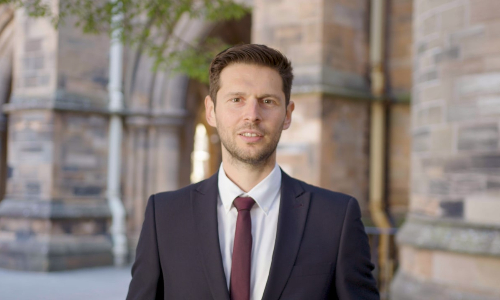RSSE Theodore Koutmeridis (University of Glasgow) Shaking Criminal Incentives
| Začátek: | čtvrtek 30. března 2023, 12:45 |
|---|---|
| Konec: | čtvrtek 30. března 2023, 14:15 |
| Místo konání: | RB 437 |
| Kontaktní osoba: | Tomáš Miklánek |
| Tagy: | #doktorandi #prednaska #research #rsse #zamestnanci |
It is our pleasure that dr. Theodore Koutmeridis (University of Glasgow) will present on Thursday, March 30, 2023, at 12:45 in room RB437 about his research on the topic„Shaking Criminal Incentives“.
Registration is not required and anyone who would like to attend is warmly invited.
BIO: Dr. Theodore Koutmeridis is a Senior Lecturer in Economics at the Adam Smith Business School at the University of Glasgow, where he coordinates the Behaviour, Structure, and Interventions network for interdisciplinary research. He holds a Ph.D. in Economics from Warwick University where he was a Royal Economic Society Junior Fellow and an Onassis Scholar. His work on inequality, poverty and crime has been recognised with various awards, such as the Sir Alec Cairncross Prize in Economics, the 1st Prize of the European Science Days Interdisciplinary Award, and has been featured in the media and various symposia, such as his “Underground Economy” TEDx talk and his “Crime and Prices” video. His work has been awarded grants for research, teaching, impact and engagement, and is currently co-funded via an ESRC-DFID grant of £700,000 for education accountability fieldwork in disadvantaged Indian schools. He is committed to outreach and policy, and he has contributed to various consultations and policy reports. He is affiliated with the Institute of Labor Economics IZA and he was a Visiting Scholar at Columbia University. More recently he received the British Academy Rising Star Award and the RSE Henry Duncan Medal, which according to the Royal Society of Edinburgh, he has been awarded ‘‘for his outstanding work in the field of economics where he combines a clear mastery of the microeconomic methodology, a keen instinct for its empirical applications and a deep commitment to engagement activities.’’,
ABSTRACT: We study criminal incentives exploiting the devastating shock of the 1995 Kobe earthquake. Evidence shows that the earthquake decreased burglaries but left other crime types unaffected. The effect stays significant even after controlling for unemployment, policing and income. We corroborate this by instrumenting damages with the distance from the earthquake epicentre. These findings survive various robustness checks under different specifications. The evidence is consistent with a simple theory of crime, value and specialization. We conclude that burglars respond to damages that devaluate their prospective takings. Yet, they cannot shift their specialization and substitute burglaries with other crime types.
